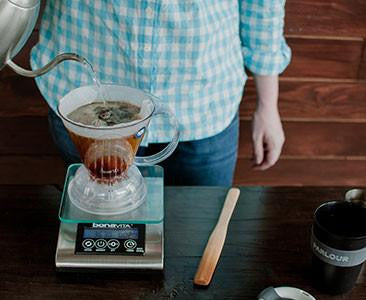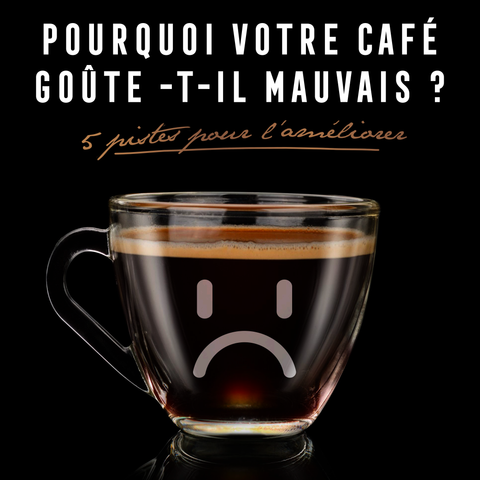I travel a lot. And on the road, my desire to drink good food does not diminish. And while I can arrange to bring my coffee kit to my hotel room, when I go to a restaurant, I have to make do with what is served. And it's often quite painful. And usually the people who accompany me ask me the famous question:
Why is the coffee in some restaurants so bad?
Even those who offer good food and dessert will end the meal with a cup of brown liquid that tastes questionable. There are exceptions, but honestly, they are exceptions. The poor quality of coffee served in restaurants is widespread.
Let me explain. It's quite simple.
First of all, running a restaurant is hard. Very difficult. And this is probably one of the areas where there are the most bankruptcies, failures, broken dreams. You have to be passionate and not half-hearted. And what's more, it doesn't pay at all. Working full time at minimum wage probably pays more than running a small restaurant. In short, it's quite an extreme area.
The restaurateur, who is obliged to comply with all hygiene and safety rules, to buy a package of hi-tech kitchen equipment, to install stainless steel everywhere, will have to manage his very tight budgets. And in his initial purchases, and in his shopping for suppliers, he will have to make choices for each product.
In the case that interests us this morning, the coffee supplier.
And this is where it gets interesting because certain suppliers/distributors, usually supported by large coffee companies, will make the following offer to the restaurateur.
We lend you coffee makers, grinders, thermoses, stoves for free, we also install this for free and in exchange, you agree to buy coffee from us. The restaurateur looks at his budget and sees the immediate savings. Savings that can easily exceed $5,000 and more if you add an espresso machine and dosing grinders. The supplier assures him that his coffee is good and gives him a very good price. It's almost too beautiful.
The restaurateur then turns to a small local roaster, which offers better coffee, but it cannot provide equipment. At least, he could, by purchasing lower grade coffees, and even be able to arrive at the same price as his competitor, but it would be impossible to pay for the equipment loaned. Unless you really cut down on the quality of the coffee. Which would then be harmful to its image.
You will then understand the decision of the restaurateur who will choose the equipment lender and who will remain in this situation, as long as the local roaster does not lend him equipment, or until he decides to invest in equipment. coffee equipment.
But as I said earlier, the world of catering is so bustling that our restaurateur will not have the time or money to change coffee suppliers. The person who lends him the equipment does a good job, is friendly, maintains the equipment, repairs it if it breaks, etc. It's comfortable, it's brown, it's warm, it doesn't taste too bad with 2 creams and 2 sugars.
Coffee suppliers targeting restaurateurs are therefore more equipment rental companies, which include the rental cost in the sale of coffee. We find somewhat the same structure with companies that rent photocopiers and sell paper. It's the same thing.
There is a unique symbiosis between restaurateurs and cafe equipment lenders, based on a concept of loyalty through constraint. When changing supplier involves costs and hassle, you don't change anything.
This equipment loan technique is also present in the beverage industry in general, with fridge loans for soft drink bottles. I lend you the fridges, you buy me juice, liqueurs, etc.
Same thing with beer, where the big brands will provide fridges, give parasols, tables, all kinds of accessories to build customer loyalty. It's fair game. The difference is that the customer will ask ''What type of beer do you have?'' We are used to seeing several manufacturers in a restaurateur's offer. It's even common to see a restaurateur buy his own fridges to keep the local microbrewery running.
But in coffee, it is very rare for a restaurant, hotel or bar to offer several manufacturers. ''Today in my coffee makers, I have a house blend from Van Houtte, and a Guji from Ethiopia from the last harvest from Brûlerie du Quai. We are often only entitled to one filter coffee, and sometimes espresso, but coming from a single supplier, i.e. the equipment lender.
However, more and more restaurateurs are deciding to buy their own coffee maker and be independent in their purchase. They often own all the equipment in their kitchen, cold room, hob, fryer, oven, etc. Why not the coffee maker?
I invite you this morning to ask questions the next time you visit a coffee place. And if you see that they are aware of buying local, that they serve microbrewery beers, ask them why they don't serve coffee from the local roaster. And I especially invite you to complain if the coffee is bad.




Comments (0)
There are no comments for this article. Be the first one to leave a message!